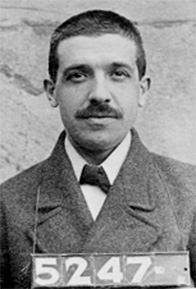 The last couple of decades has seen some remarkable cases of corporate excess and corruption. The deep-rooted human inclinations toward greed, telling falsehoods and exhibiting questionable ethics can probably be traced to the dawn of bipedalism. However, in more recent times we have seen misdeeds particularly in the business world grow in their daring, scale and impact.
The last couple of decades has seen some remarkable cases of corporate excess and corruption. The deep-rooted human inclinations toward greed, telling falsehoods and exhibiting questionable ethics can probably be traced to the dawn of bipedalism. However, in more recent times we have seen misdeeds particularly in the business world grow in their daring, scale and impact.
We’ve seen Worldcom overstate its cashflows, Parmalat falsifying accounts, Lehman Brothers (and other investment banks) hiding critical information from investors, Enron cooking all their books, Bernard Madoff marketing his immense Ponzi scheme, Halliburton overcharging government contracts, Tyco executives looting their own company, Wells Fargo and other retail banks robo-signing contracts, investment banks selling questionable products to investors and then betting against them, and now ever more recently, Barclays and other big banks manipulating interest rates.
These tales of gluttony and wrongdoing are a dream for social scientists; and for the public in general, well, we tend to let the fat cats just get fatter and nastier. And, where are the regulators, legislators and enforcers of the law? Well, they are generally asleep at the wheel or in bed, so to speak, with their corporate donors. No wonder we all yawn at the latest scandal. However, some suggest this undermines the very foundations of western capitalism.
[div class=attrib]From the New York Times:[end-div]
Perhaps the most surprising aspect of the Libor scandal is how familiar it seems. Sure, for some of the world’s leading banks to try to manipulate one of the most important interest rates in contemporary finance is clearly egregious. But is that worse than packaging billions of dollars worth of dubious mortgages into a bond and having it stamped with a Triple-A rating to sell to some dupe down the road while betting against it? Or how about forging documents on an industrial scale to foreclose fraudulently on countless homeowners?
The misconduct of the financial industry no longer surprises most Americans. Only about one in five has much trust in banks, according to Gallup polls, about half the level in 2007. And it’s not just banks that are frowned upon. Trust in big business overall is declining. Sixty-two percent of Americans believe corruption is widespread across corporate America. According to Transparency International, an anticorruption watchdog, nearly three in four Americans believe that corruption has increased over the last three years.
We should be alarmed that corporate wrongdoing has come to be seen as such a routine occurrence. Capitalism cannot function without trust. As the Nobel laureate Kenneth Arrow observed, “Virtually every commercial transaction has within itself an element of trust.”
The parade of financiers accused of misdeeds, booted from the executive suite and even occasionally jailed, is undermining this essential element. Have corporations lost whatever ethical compass they once had? Or does it just look that way because we are paying more attention than we used to?
This is hard to answer because fraud and corruption are impossible to measure precisely. Perpetrators understandably do their best to hide the dirty deeds from public view. And public perceptions of fraud and corruption are often colored by people’s sense of dissatisfaction with their lives.
Last year, the economists Justin Wolfers and Betsey Stevenson from the University of Pennsylvania published a study suggesting that trust in government and business falls when unemployment rises. “Much of the recent decline in confidence — particularly in the financial sector — may simply be a standard response to a cyclical downturn,” they wrote.
And waves of mistrust can spread broadly. After years of dismal employment prospects, Americans are losing trust in a broad range of institutions, including Congress, the Supreme Court, the presidency, public schools, labor unions and the church.
Corporate wrongdoing may be cyclical, too. Fraud is probably more lucrative, as well as easier to hide, amid the general prosperity of economic booms. And the temptation to bend the rules is probably highest toward the end of an economic upswing, when executives must be the most creative to keep the stream of profits rolling in.
The most toxic, no-doc, reverse amortization, liar loans flourished toward the end of the housing bubble. And we typically discover fraud only after the booms have turned to bust. As Warren Buffett famously said, “You only find out who is swimming naked when the tide goes out.”
Company executives are paid to maximize profits, not to behave ethically. Evidence suggests that they behave as corruptly as they can, within whatever constraints are imposed by law and reputation. In 1977, the United States Congress passed the Foreign Corrupt Practices Act, to stop the rampant practice of bribing foreign officials. Business by American multinationals in the most corrupt countries dropped. But they didn’t stop bribing. And American companies have been lobbying against the law ever since.
Extrapolating from frauds that were uncovered during and after the dot-com bubble, the economists Luigi Zingales and Adair Morse of the University of Chicago and Alexander Dyck of the University of Toronto estimated conservatively that in any given year a fraud was being committed by 11 to 13 percent of the large companies in the country.
[div class=attrib]Read the entire article after the jump.[end-div]
[div class=attrib]Image: Mug shot of Charles Ponzi (March 3, 1882 – January 18, 1949). Charles Ponzi was born in Italy and became known as a swindler for his money scheme. His aliases include Charles Ponei, Charles P. Bianchi, Carl and Carlo.. Courtesy of Wikipedia.[end-div]
